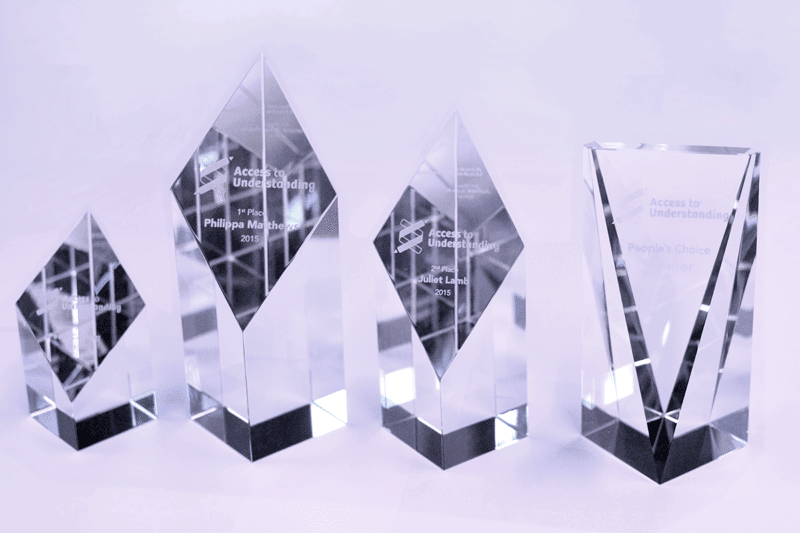With the Access to Understanding awards ceremony just about
wrapping up, we can now announce the winners…
wrapping up, we can now announce the winners…
First place was awarded to Philippa Matthews for
her entry ‘Rolling back malaria: A journey through space and
time’, which described research exploring the changing
patterns of malaria risk across Africa. The piece was praised by our judges for
its enthusiasm, clear writing style, and sense of narrative; “using the facts to tell the story” with
a “sense that the research team were on
an expedition”. Congratulations Philippa!
her entry ‘Rolling back malaria: A journey through space and
time’, which described research exploring the changing
patterns of malaria risk across Africa. The piece was praised by our judges for
its enthusiasm, clear writing style, and sense of narrative; “using the facts to tell the story” with
a “sense that the research team were on
an expedition”. Congratulations Philippa!
Second place went to Juliet Lamb for her entry ‘Who you are, or who you’re with? Age predicts
disease risk’. The judges felt that it was
“confidently written” and did a “great
job of clarifying the use of mathematical models in research”. And third
place was awarded to Peter Canning for his entry ‘Breaking through cancer’s acid shell’ which “didn’t shy
away from the hard science” of drug absorption in the acidic environment
around tumours.
disease risk’. The judges felt that it was
“confidently written” and did a “great
job of clarifying the use of mathematical models in research”. And third
place was awarded to Peter Canning for his entry ‘Breaking through cancer’s acid shell’ which “didn’t shy
away from the hard science” of drug absorption in the acidic environment
around tumours.
And finally, the People’s Choice Award – a
key part of our competition – read by you and voted for by you. The
overwhelming response to the award, with over 1600 votes across all entries, yet
again demonstrates the public appetite for accessible science writing. This
year’s winner with over 400 votes was Sabrina Talukdar with her entry ‘The persistent perils of
puberty’. One reader commented that it was a “well
written piece, making the original paper very accessible to lay people”
which is exactly what Access to Understanding is about.
key part of our competition – read by you and voted for by you. The
overwhelming response to the award, with over 1600 votes across all entries, yet
again demonstrates the public appetite for accessible science writing. This
year’s winner with over 400 votes was Sabrina Talukdar with her entry ‘The persistent perils of
puberty’. One reader commented that it was a “well
written piece, making the original paper very accessible to lay people”
which is exactly what Access to Understanding is about.
The standard of entries this year was very
high, and it’s great to see the enthusiasm, talent and motivation
of all the scientists who entered the competition.
high, and it’s great to see the enthusiasm, talent and motivation
of all the scientists who entered the competition.
You can read all of the shortlisted
articles on the Access to Understanding website,
with topics ranging from body clocks to tinnitus. If you want to delve deeper,
every article is also accompanied with a link to the original research paper freely
available from Europe PMC – the European
gateway to biomedical research.
articles on the Access to Understanding website,
with topics ranging from body clocks to tinnitus. If you want to delve deeper,
every article is also accompanied with a link to the original research paper freely
available from Europe PMC – the European
gateway to biomedical research.




